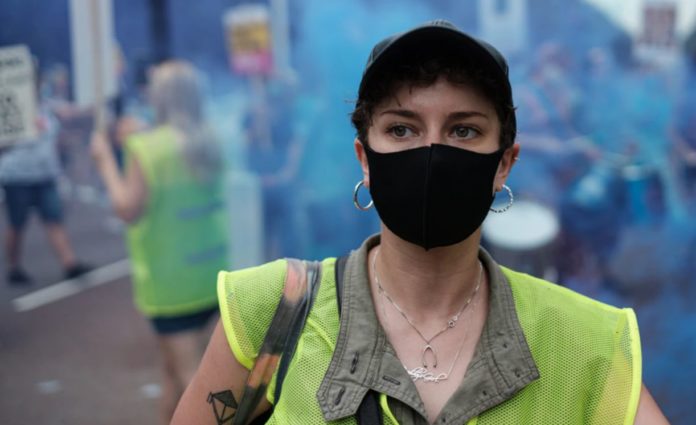One year after the WHO formally declared the pandemic on the planet, there is still no international alert system that works. What would have happened if WHO had issued this statement earlier? Are we now better prepared to face another pandemic in the future? We consult with public health experts.
We will never know for sure what would have happened if the World Health Organization (WHO) had declared the pandemic before March 11, 2020, when it did so formally. But as has happened so many times throughout this year, it is easy to get carried away with the idea – looking at the succession of events in hindsight – that many lives would have been saved.
“I think [the statement] was a month late,” says Patrick Hardy, an expert in public emergency management. “Some countries like Australia were treating COVID-19 as a pandemic since the first week of February and activated border controls, contact tracing, and other immediate public health measures.”
In reality, the WHO issued an alert earlier – a Public Health Emergency of International Concern on January 30, 2020, in order for countries to prepare for a potential health emergency. But they did not mention the keyword, the one we know so well today, the one that put governments and citizens in motion. The declaration of a pandemic confined us and placed the mask on us; before, there was still the idea that the virus was something far away that would not reach us.
On March 11, 2020, the international health agency said that the coronavirus could be considered a pandemic. Its CEO, Tedros Adhanom Ghebreyesus, addressed the media in a more bleak tone than usual. The number of countries affected had tripled and the number of victims was 4,291.
Do not use lightly
A number that, to date, seems ridiculous, compared to more than 529,000 people that the virus has killed to date in the US alone but, nevertheless, set off alarms of what was to come. “We are deeply concerned about both the alarming levels of spread and severity, as well as the alarming levels of inaction,” the WHO leader said at the time.
“Pandemic is not a word that can be used lightly. It is a word that, if misused, can cause unwarranted fears, or an unwarranted acceptance that the battle is lost, which can lead to unnecessary suffering and death.”
This premonition sadly came true; many experts are now wondering if this warning was late. The debate on the need to reform this global alert mechanism to prevent the same from happening in the face of a new pandemic that many experts do not doubt will come is already underway.
“Despite the emergency declaration on January 30, political actors and the population began to push the WHO to declare a pandemic, without recognizing that the global alerting power that the Member States have granted is PHEIC, and that the term pandemic is descriptive for geographic transmission and is largely rhetorical,” experts from the International Law and Infectious Diseases Impact Consortium at Georgetown University in Washington pointed out in an article last November.
In a preliminary report published in January, the independent group of experts examining the international response to the coronavirus wondered whether it would have helped if the WHO had used the term “pandemic” earlier. “Although this term is not used or defined in the International Health Regulations (2005), its use serves to draw attention to the seriousness of a health problem. The WHO did not use that term until March 11.”
Although it may seem like a semantic issue, the fact is that words have a powerful emotional impact. And pandemic scares much more than ‘public health emergency of international concern (PHEIC)’.
Last Monday, when asked at a press conference if the WHO should have been more forceful about the imminent pandemic, Mike Ryan, head of emergencies of the international organization, replied: “Yes, we may have to shout louder. But maybe some people may need hearing aids.”
